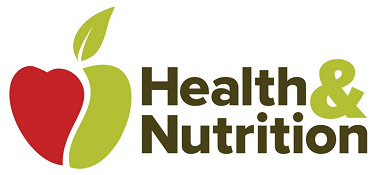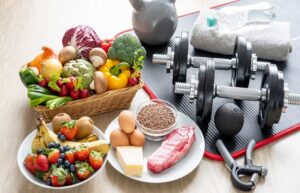Focusing on the right foods to improve recovery is fundamental, in order to make the most of your efforts in training. It is through diet and recovery that you will progress and achieve your sporting goals.
Whether after bodybuilding or endurance sport (running, swimming, cycling), recovery is influenced by the choice of food consumed after sport.
In this article, find the foods to eat, drinks, proteins, and carbohydrates to recover after sport, for bodybuilding and endurance sport.
Indeed, eating well to recover faster is particularly important if you perform several training sessions on the same day, or close intense sessions on several consecutive days.
If you don’t train every day, sports recovery nutrition is also important, but it can be obtained through your regular meals and snacks.
This meal can be supplemented with a fresh fruit, and/or a dairy product, to increase the protein and carbohydrate intake.
If your meal is too far from the end of training, it is advisable to take a snack, containing foods rich in carbohydrates (fruits, cereals), and quality proteins (20 to 25 grams).
What drink to recover after sport?
Regarding hydration after sport, the most important thing is to drink enough to compensate for the loss of liquids and minerals. Indeed during training, you lose water, and mineral salts, through sweat.
Ideally, it is advisable to drink a quantity of liquid to make up for 125 to 150% of water losses in the hours following your race or training. For example, a 60 kg runner who weighs 1.5 kg less after a 90-minute running session should consume 1.75 to 2 liters of fluid in the following hours.
There is no point in drinking a commercial recovery drink, which often contains fast sugars, for daily training. These drinks are reserved for “intensive” recovery, when two intense sessions are close together, or between competitions.
Nb: To know your water loss during training, you can weigh yourself before and after the session, to determine how much water you should drink after sport.
Food sources are preferred, and powders are secondary, only if that is more convenient, but they are not more effective.
If you must consume a protein powder supplement, choose the most complete formula possible, with enough leucine,
Indeed, muscle glycogen is the main source of fuel during intensive exercise, and an important source of energy during endurance sport.
To recover muscularly, the quantity of carbohydrates to consume depends essentially on the intensity and volume of the daily training:
Consuming between 1 and 1.5 grams of glucose per hour after exercise is ideal for increasing rates of muscle glycogen synthesis over a 2 hour period.
However, their action remains very limited, and cannot be compared to that obtained through diet and sleep. They should therefore be seen as a “plus” for regular or professional athletes who already have optimal nutrition and sleep.
In general, strength training causes stimulation of protein synthesis, as well as increased protein breakdown, resulting in a negative protein balance.
Thus, supplying nutrients, especially protein, helps to stimulate muscle synthesis, and improve overall net protein balance.
protein for bodybuilding
After strength training, carbohydrate intake has been shown to slightly stimulate protein synthesis. But it is above all the protein intake, in particular the essential amino acids , that causes a rapid and pronounced increase in muscle protein synthesis.
For this, the most important element for muscle recovery in bodybuilding will be to consume a dose of protein of 20 to 30 grams, within 3 hours after training.
This protein intake will be renewed every 3 to 4 hours, on the different meals or snacks that follow training. 20g of quality protein (8-10g of essential amino acids), no more than 5-6 times a day, results in maximum stimulation of muscle protein synthesis.
A single resistance training session can lead to a reduction in muscle glycogen stores by 24-40%. Higher-repetition, moderate-load training, recommended for mass gain, results in the greatest reductions in muscle glycogen stores.
Thus, to be able to carry out a quality bodybuilding session the next day, a sufficient consumption of carbohydrates, via foods rich in carbohydrates, up to 3 to 7 g/kg/d, will be necessary.
Thus, to maximize post-workout recovery , a nutritional strategy that includes optimal carbohydrate and protein intake must be targeted.
Consumption of frequent meals throughout the day containing enough carbohydrates (5 to 10 g/kg/d depending on training intensity), and protein (1.4 to 1.8 g/kg/d ), will help restore muscle glycogen completely and maintain muscle strength, over restricted recovery periods (8-24 hrs).


